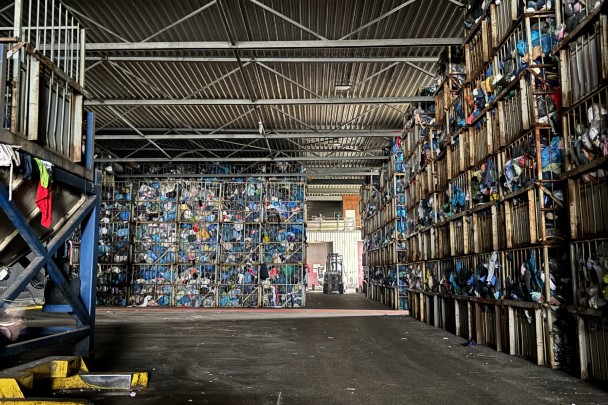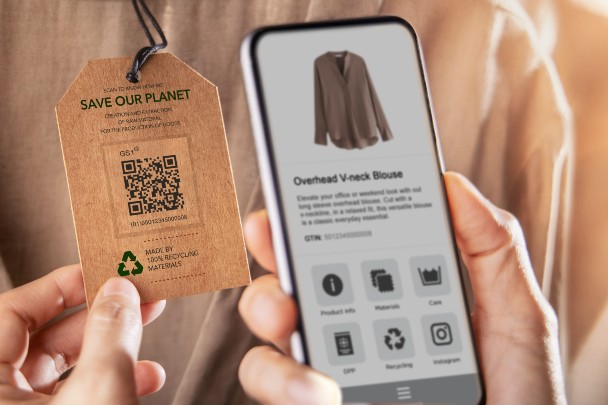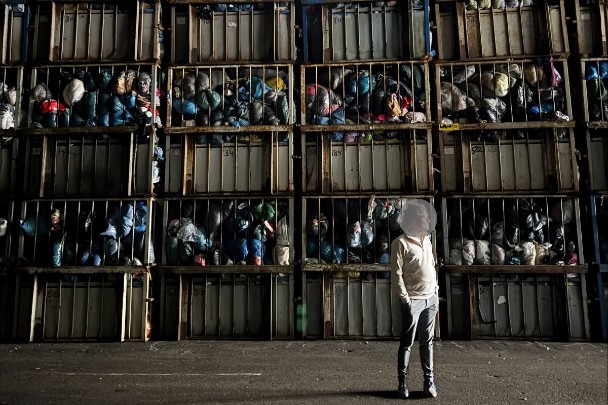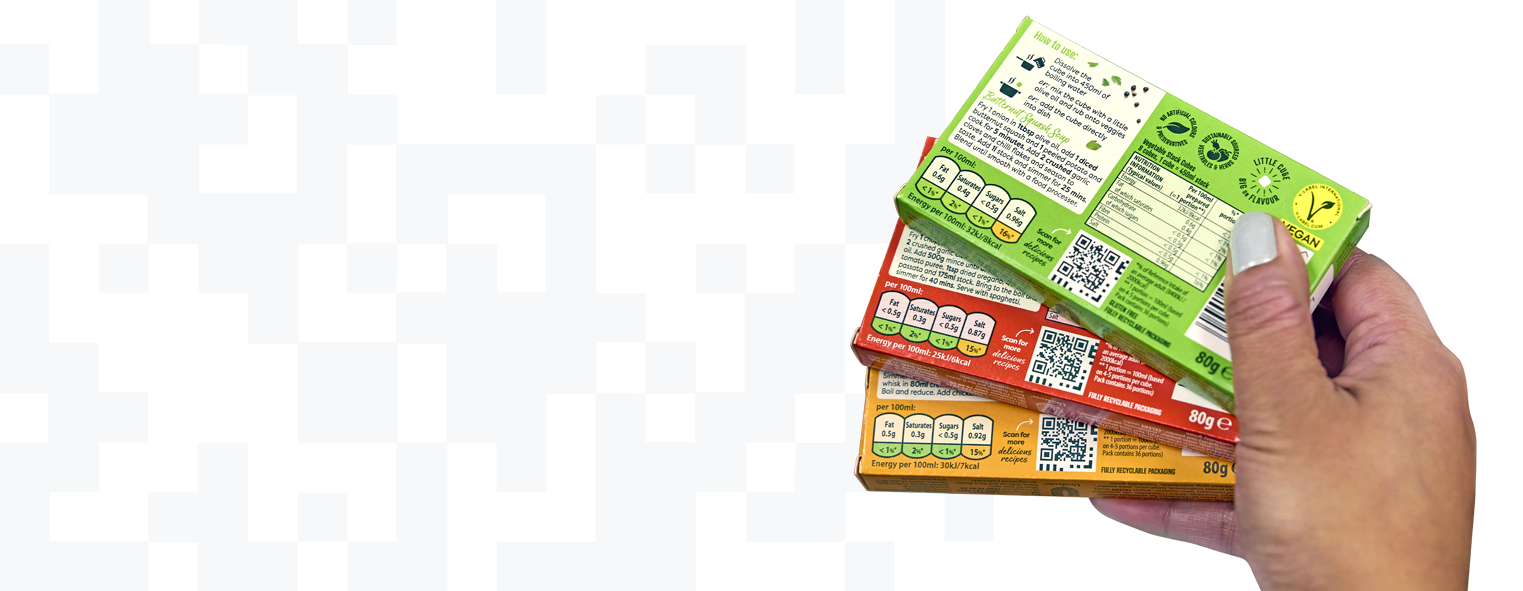May 22, 2025 Industry news
The fashion and textile industries are under increasing pressure to become more sustainable. As new regulations take shape and circular models gain ground, Digital Product Passports (DPPs) are emerging as a powerful solution, enabling garments to be reused, repaired, or recycled more effectively.
Underpinned by GS1 standards, DPPs will ensure that the data needed to power these processes is accessible, accurate and interoperable. As every garment is expected to carry at least a QR code with a scannable DPP (if not also an RFID tag) GS1 standards provide the essential framework to digitalise the downstream processes of the circular economy.
The challenge: manual sorting and data gaps
On a recent visit to a textile recycling factory, I witnessed firsthand the enormous scale of material inflows and the overwhelming reliance on manual labour. At the initial sorting stage, delicate handling is necessary to remove contaminants. However, the absence of RFID or barcode scanning in sorting processes means workers must rely on visual cues and experience to differentiate brands and determine which garments can be resold.

A recycling facility in the Netherlands
One of the biggest barriers to effective textile recycling is the loss of key material information.
Fibre-composition labels often fade, wash away or are removed entirely. This leaves recyclers blind as to what a garment is made of.
Without this critical data, it becomes impossible to sort garments accurately for recycling. To make matters worse, many facilities still run on legacy IT systems. Some are even using ERP platforms that are over twenty years old.
This significantly limits their ability to effectively capture, track and manage material flows at scale.
The growing importance of a strong downstream strategy
A robust downstream strategy is essential as repair and resale markets continue to grow exponentially. Research from WRAP shows that for every five garments donated for reuse, one offsets the purchase of a new item, significantly reducing the demand for virgin textiles. Nearly 70 per cent of used clothing in the UK is exported for resale, primarily to Africa and Eastern Europe. Yet without reliable data on material composition or garment quality, recyclers and resellers are often unable to unlock the full value of these streams, resulting in unnecessary waste. Digital Product Passports (DPPs) can change this by improving traceability, enabling smarter sorting and ensuring garments are directed to their highest-value use, whether that be resale, repair or recycling.
How digital product passports change the game
Digital Product Passports (DPPs) offer a digital twin of a garment, accessible via a simple scan.

They carry essential data, such as:
- Fibre composition and material origins
- Manufacturing and dyeing processes
- Care and repair instructions
- Resale history and previous owners (where relevant)
- End-of-life recycling guidance
When structured using GS1 standards, this data becomes machine-readable and interoperable.
This enables automated sorting, more efficient resale and higher-value recycling outcomes.
Why GS1 standards are essential
GS1 standards provide the interoperability needed for Digital Product Passports (DPPs) to function seamlessly across global supply chains. They ensure that data is structured, accessible and reliable, supporting automation, traceability and circularity at scale. The key standards enabling this transformation include:
- QR codes powered by GS1: the GS1 Digital Link standard turns a standard QR code into a dynamic digital gateway to product-specific information, ensuring traceability across the entire lifecycle.
- Global Trade Item Number (GTIN): a globally unique identifier that distinguishes each product type, preventing duplication in recycling databases and ensuring consistent garment tracking.
- Radio Frequency Identification (RFID) tags: encoded with an Electronic Product Code (EPC), RFID tags allow real-time identification of individual garments. They also support automated bulk scanning, reducing manual handling and increasing efficiency in sorting and logistics.
- Electronic Product Code Information Services (EPCIS 2.0): enables organisations to capture and share key events, such as when and where a garment was made or resold, so every step in the supply chain is visible and verifiable.

GS1 UK is working closely with fashion retailers, technology providers and policymakers to pilot Digital Product Passports and support the development of GS1 UK is actively collaborating with fashion brands, recyclers, technology providers and policymakers to pilot Digital Product Passports and develop consistent frameworks to support the circular economy. By leveraging globally recognised standards, GS1 UK is helping to ensure the transparency, traceability and interoperability essential for scalable, sustainable outcomes.
By adopting GS1 standards, apparel companies can modernise their operations and provide recyclers with the accurate data needed to optimise sorting, recovery and recycling, paving the way for a more circular and efficient textile system.
A new era for the circular economy
The impact of DPPs extends far beyond recycling. Resale platforms benefit from verified product data, strengthening consumer trust in second-hand goods. Repair businesses gain instant access to garment specifications, making repairs faster and more precise. Brands can ensure compliance with upcoming EU regulations requiring product transparency and extended producer responsibility (EPR). Textile recyclers can move from an analogue, manual process to digital, data-driven systems that increase efficiency and dramatically reduce waste.
The textile industry is on the cusp of a digital revolution. With Digital Product Passports powered by GS1 standards, we have the opportunity to build a transparent, efficient and truly circular system where every garment’s journey from production to resale, repair and recycling is digitally documented and accessible.
It is time for brands, recyclers and policymakers to come together and embrace this innovation. By adopting Digital Product Passports built on open, global standards, industry can make textile waste a thing of the past and build a more circular, sustainable future for fashion.




